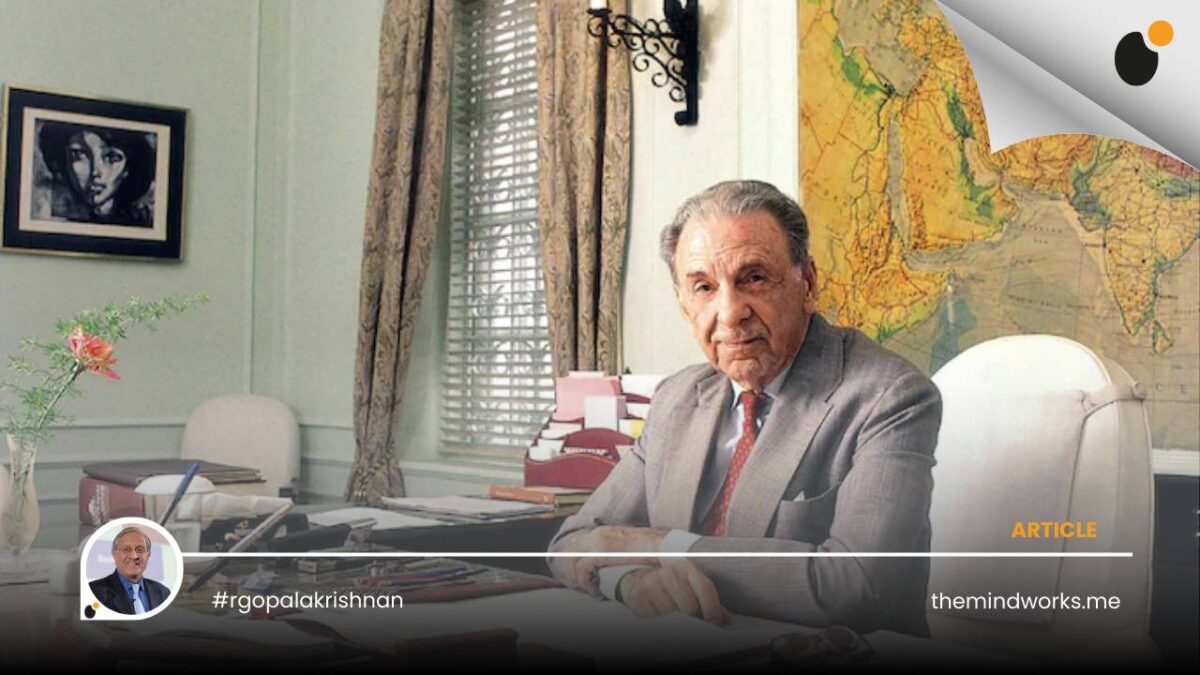Leaders rarely display self-deprecating humor in public. To his credit, Rishi Sunak did so in the British Parliament last week when he spoke about “having achieved, at age 44, a bright future that is behind”. More commonly, we witness the leadership afflictions of charisma, megalomania, and cult. Mercifully, many leaders minimize bad effects through the art of humble leadership; they imagine their tenure as just a comma, though an important one, in the long sentence of history. About a decade ago, I had written a book about social change in India from the 1800s through the eyes of six generations of my ancestors from a village in Thanjavur. Titled “A Comma in a Sentence”, that book has inspired the headline of this piece.
Voltaire had said, “If God did not exist, it would be necessary to invent him.” Messiahs with names beginning with M — like Mahadev, Moses, and Mohammed — invoke God by promising a golden period if only people would heed them. For contemporary leaders, however, invoking God borders on danger. As writer Ferdinand Mount points out, “lay people must do their best to be alert to an upcoming Caesar with his relentless egoism, lack of scruple, thoughtless brutality, and cheesy glitz” (Big Caesars and Little Caesars).
On January 1, AD 399, the humble Flavius Theodorus became a top Roman politician. He was both competent and articulate. His contemporary described Theodorus as “a man inflated with monstrous pride”. He triumphantly predicted a golden age for Rome. But within a decade, Rome fell to an invasion.
Readers will recall the mid-1960s, when Charles de Gaulle, a staunch Catholic and respected world statesman, behaved like an elected monarch. He promised France golden years ahead, as he asserted, “I believe in God and the future of my country”. Beginning in May 1968, unfortunately, civil unrest and students’ protests wrecked his regime and the French economy.
Invoking God and predicting a golden future bear hidden dangers. In 2008, when the US government was bailing out large banks, Goldman Sachs Chairman Lloyd Blankfein unabashedly stated he and his team were “doing God’s work”. God indeed! The common folk and the nation paid the price, while bankers’ bonuses were protected. When Donald Trump was recently shot, his supporters emphasized that “God saved Trump’s life so that he could deliver on God’s mission”. Really?
A safeguard against wanton calling of God is to highlight the idea of leaders’ transience and mortality. The graveyards are full of anonymous people, who, in their time, thought they were unforgettably heroic. I was reminded of this reality during a visit to the famous Pere Lachaise cemetery in Paris, where Queen Malika Kishwar, mother of Nawab Wajid Ali Shah of Awadh, lay buried — in an unmarked tomb.
Long-remembered leaders desist from trashing their predecessors. They address challenges with realism and humility, compounding the positive achievements of predecessors, while quietly correcting the negatives. Compounding the positives of the past is so important for institutionalized organizational excellence. During my 31 years at Hindustan Lever, I observed this practice followed by successive leaders. Humble leadership is seen when a leader behaves like an important comma in a long sentence.
The American Psychological Association defines humility as being “characterized by low focus on the self and a realistic sense of one’s accomplishments and worth”. Think of humble leaders such as Hwang Jensen of Nvidia, a global company engaged in advanced chips. In July 2024, he said at a commencement-day speech that he learned life’s biggest lesson from a Japanese gardener: “Stay dedicated to your craft and do it like your life’s work, you will find that you have plenty of time.” Think of Satya Nadella, who heads Microsoft, and who seems to bet on people.
Consider the legacies of Keshub Mahindra and J R D Tata as humble leaders. I have marvelled, for example, on how successive leaders in Tata over 150 years have professionally and consistently renewed Jamsetji Tata’s original enterprise philosophy. Being conscious of mortality is essential for competent, humble, and long-remembered leaders.
The writer’s latest book, JAMSETJI TATA: Powerful Learnings for Corporate Success, co-authored with Harish Bhat, was published this month.



